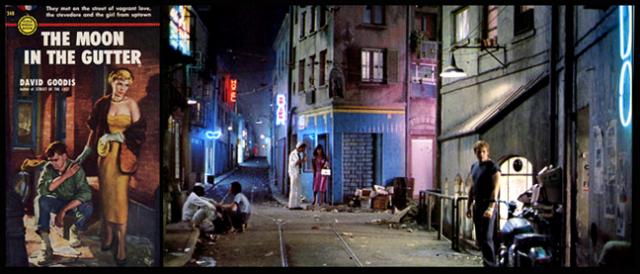The issue of economic equity is appearing on the national agenda. We’re suddenly hearing lots of talk about raising the minimum wage and other reforms to break the cycle of social Darwinism and provide working people at least a livable wage for their labor.
As a political activist, I’m impressed with how issues like these play out in the cultural realm where narrative and storytelling play a powerful role in forming the political consensus for reform in a globalized world.
I’m particularly interested in the genre of noir crime fiction. In our hi-tech, distraction-based culture, it’s arguably the rule that to get ahead one must break rules. Foolish losers follow the rules. Writing on Brazilian culture in Brazil On the Rise, Larry Rohter talks about a tradition there where laws are seen as not applying to the powerful; laws are, instead, used by the powerful against their enemies. A similar, more Anglo Saxon climate of corruption plays out in our North American capitalist world. The rich get richer and the poor, poorer. Money drives elections and justice itself.
There’s no better overarching narrative structure to address this than the genre of crime fiction, especially what is known as noir, a genre the crime fiction maven Otto Penzler, publisher and owner of the Mysterious Bookstore in New York, says is classically about desperate “losers” struggling to get somewhere in a harsh world.
There’s a movement in Philadelphia to resurrect the pulp fiction novels of David Goodis from the 1950s that emphasize ordinary working class protagonists in an essentially lawless, rough underworld in Philly. Utilizing art and entertainment, stories like this ennoble the struggle of ordinary working people.
 The 1953 pulp novel's cover and a scene from Jean-Jacques Beineix's 1983 film of The Moon in the Gutter
The 1953 pulp novel's cover and a scene from Jean-Jacques Beineix's 1983 film of The Moon in the Gutter
The Moon in the Gutter, Goodis’ 1953 classic is a wonderful pulpy noir about the realities of class in a working class river ward of Philadelphia. The plot revolves around stevedore Bill Kerrigan, a beefy, working man struggling with life at the bottom and the effort to retain some dignity. While not all “Marxist,” the novel is about the collision of class, specifically involving “slummers,” well-off, uptown people who like to drown their sorrows or walk on the wild side in a poor working class neighborhood along the Delaware River. Much of the drama takes place in a bar called Dugan’s Den, “the kind of room where every time piece seemed to run slower,” where a double shot of rotgut rye cost twenty cents. “At Dugan’s there was little interest in time. They came here to forget about time.”









